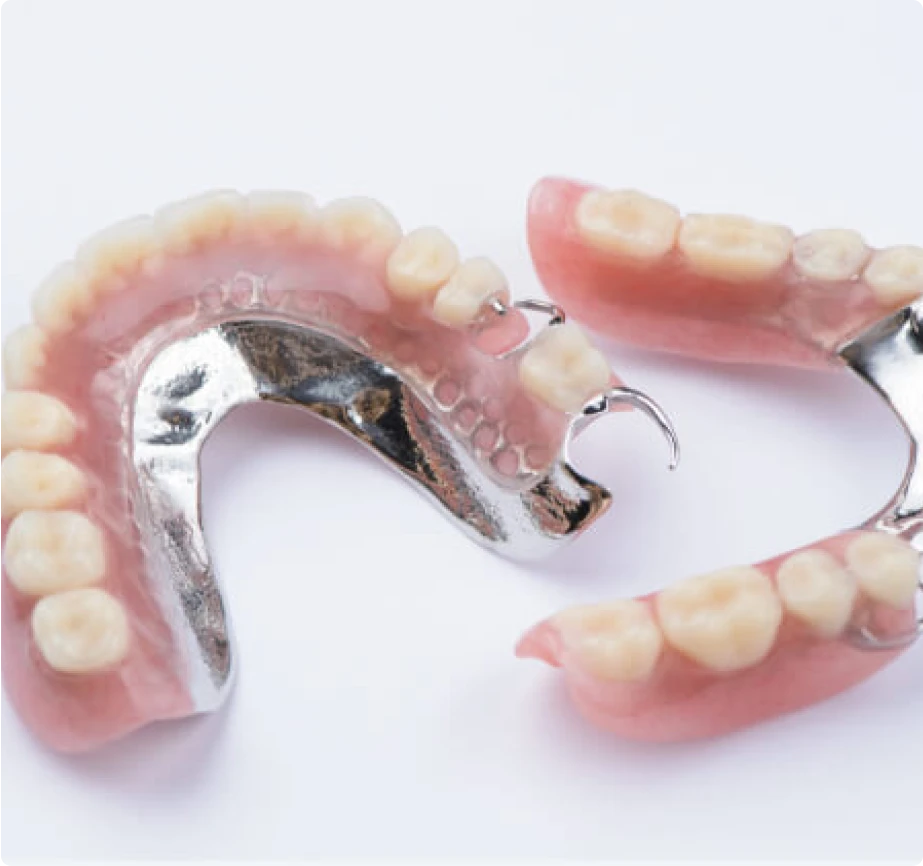Dentures are a removable dental appliance which function to replace missing teeth and supporting soft tissues. They can be made to replace single, multiple or all remaining teeth and are fabricated from a variety of materials such as high impact acrylic, cobalt and chrome.
Dentures
- Quick replacement of missing teeth - 2 appointments needed
- Cost effective
- Can be used as a temporary solution where
implants are not possible or being delayed

Google rating score of 4.8 of 5, based on 350+ reviews
0%
FINANCE OPTIONS
Evening and Weekend
APPOINTMENTS
Free
CONSULTATIONS
What are dentures?
Whilst dental implants are fast becoming the ideal replacement for missing teeth, dentures still have many benefits and are a very useful alternative especially in cases where implants and bridges may not be possible.
Dentures can also be connected to implants to improve their stability and retention, which is quite a big problem for many patients with upper and lower complete dentures.
The implants placed in the jaw, can have connectors on them which the denture can clip onto. This makes the denture more stable and remains easily cleansable.
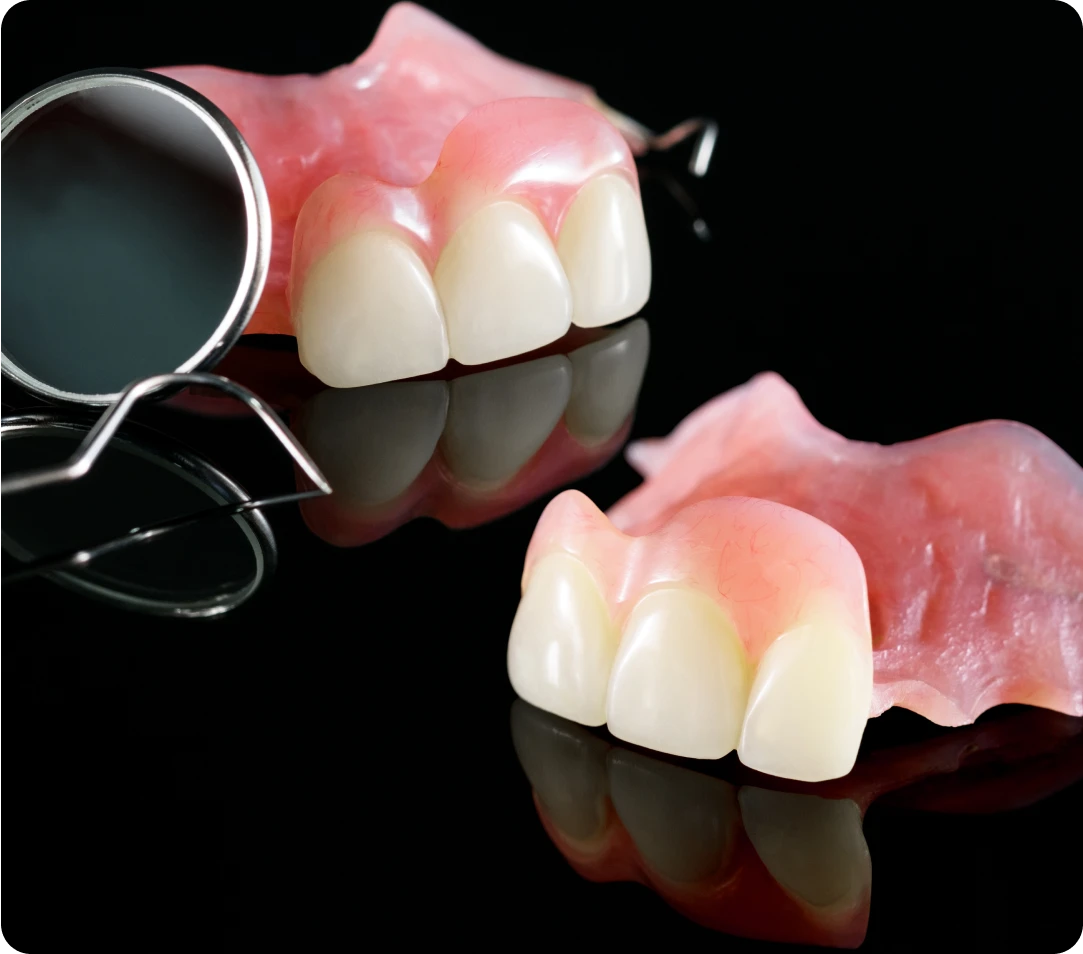
Benefits of dentures
Dentures are designed so that they replicate the function of normal teeth. This will enable the improved ability to chew, speak and function.
Without teeth, it can be somewhat difficult to eat certain foods. A good set of well fitting dentures will enable you to eat most of your favourite foods once more.

Versatile
Dentures are completely reversible and do not require adjustment or reliance on adjacent teeth. They are also completely reversible and can be adjusted, and teeth added to if required. Furthermore, If they deteriorate or break over time, they can be very easily repaired.
Dentures are very commonly used as an interim prosthesis whilst the mouth is healing for implant surgery. They can be very quickly made and manufactured and are removable.
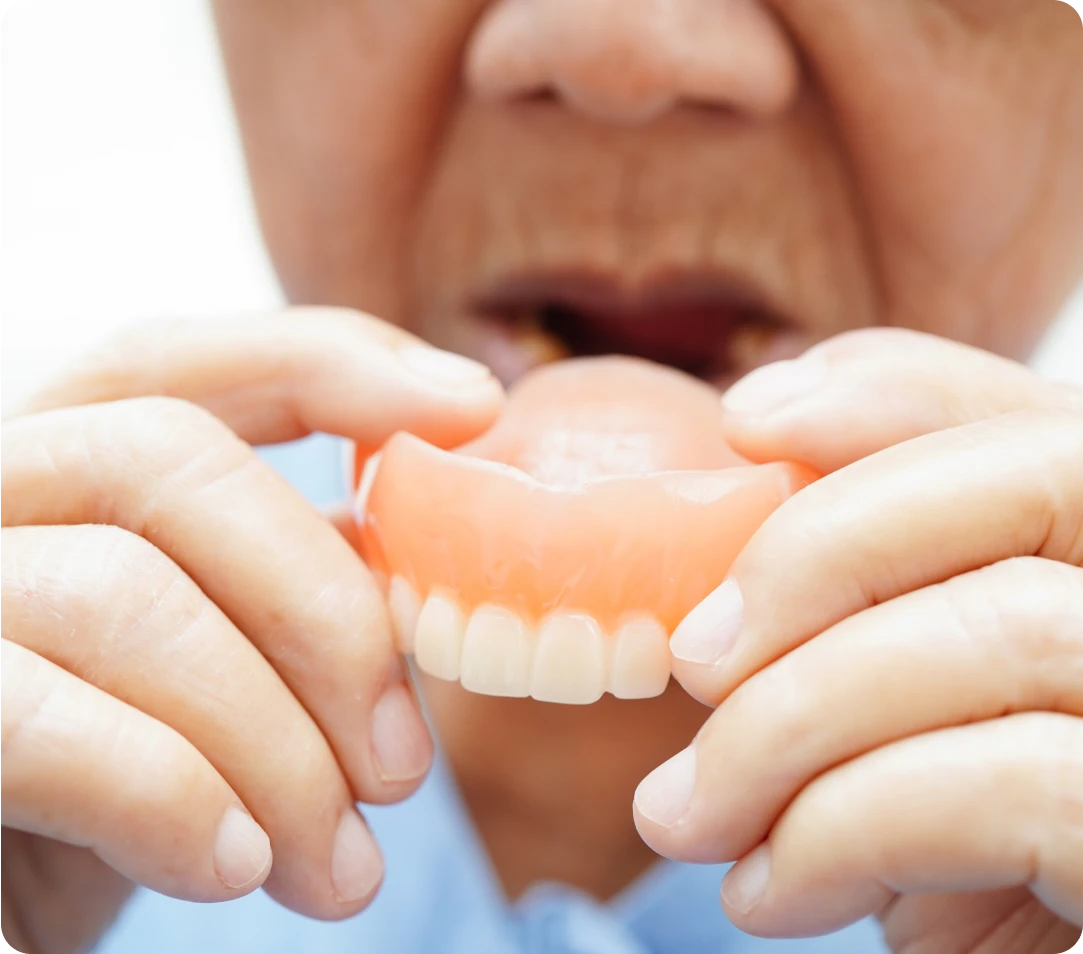
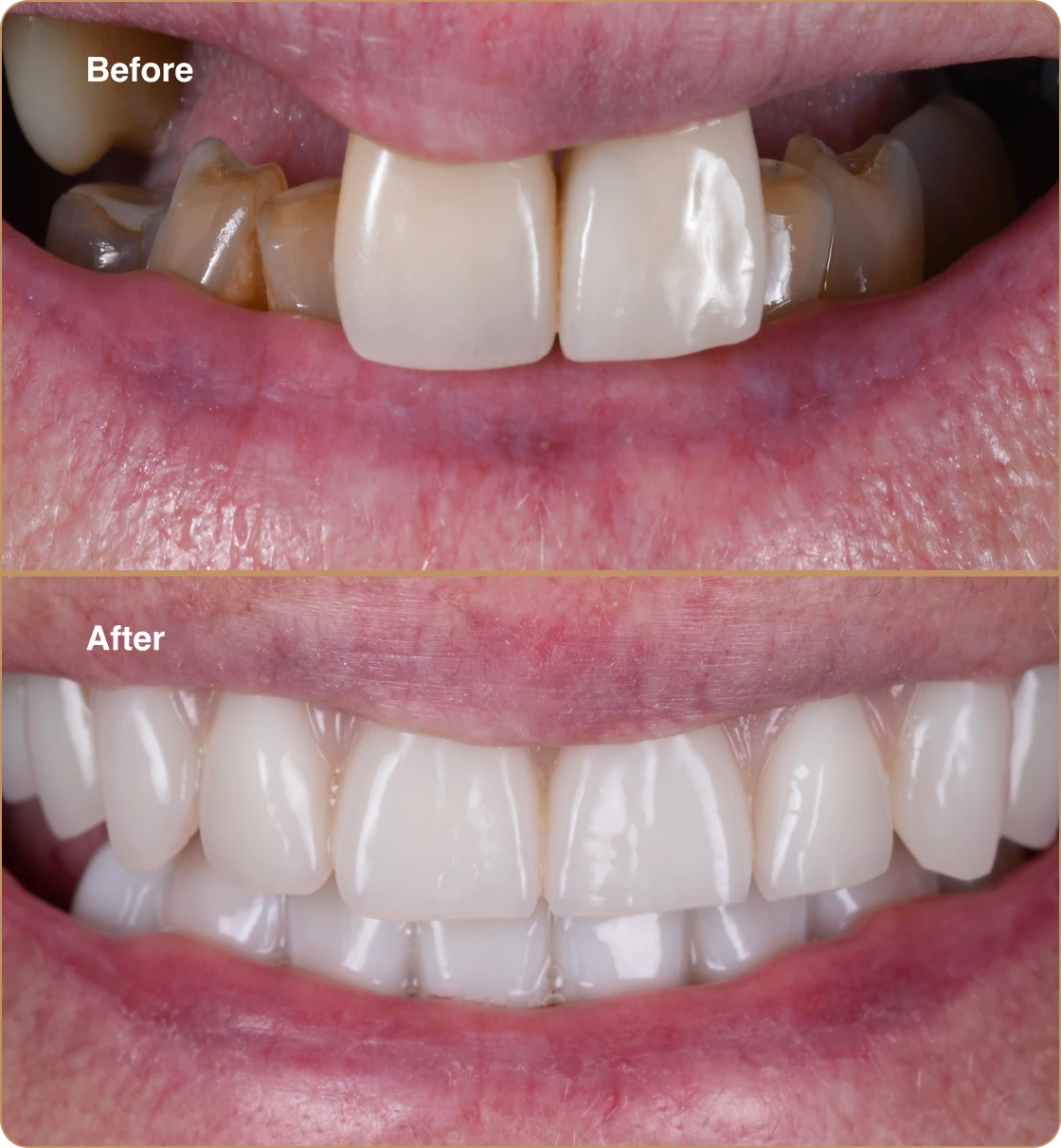
Aesthetics
By having teeth to replace missing ones, it can avoid the embarrassment of not having teeth and not smiling. This can also result in improved confidence and self-esteem which in turn can have a positive impact on your professional and personal life. Dentures can also be shaped to improve the soft tissue profile of the face which provides a fuller more youthful appearance
implant supported dentures
Say goodbye to the inconvenience and discomfort of traditional dentures. Implant-supported dentures offer a revolutionary solution that combines the stability of dental implants with the convenience of removable dentures. Whether you’re missing a few teeth or need full arch replacement, implant-supported dentures can transform your smile and restore your confidence.
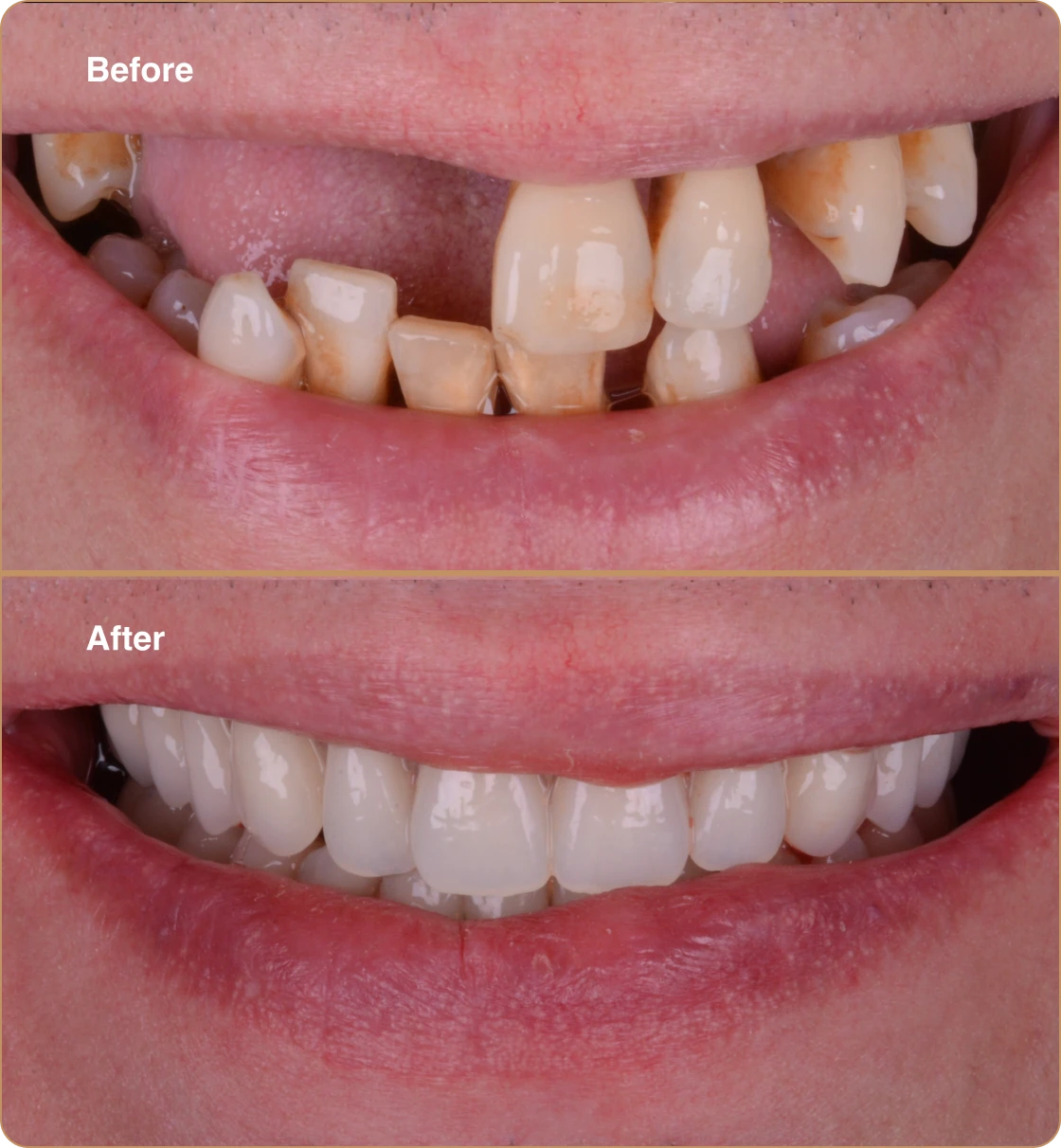
This is custom heading element
Dentures are removable artificial teeth that sit on the gums, offering a temporary solution.
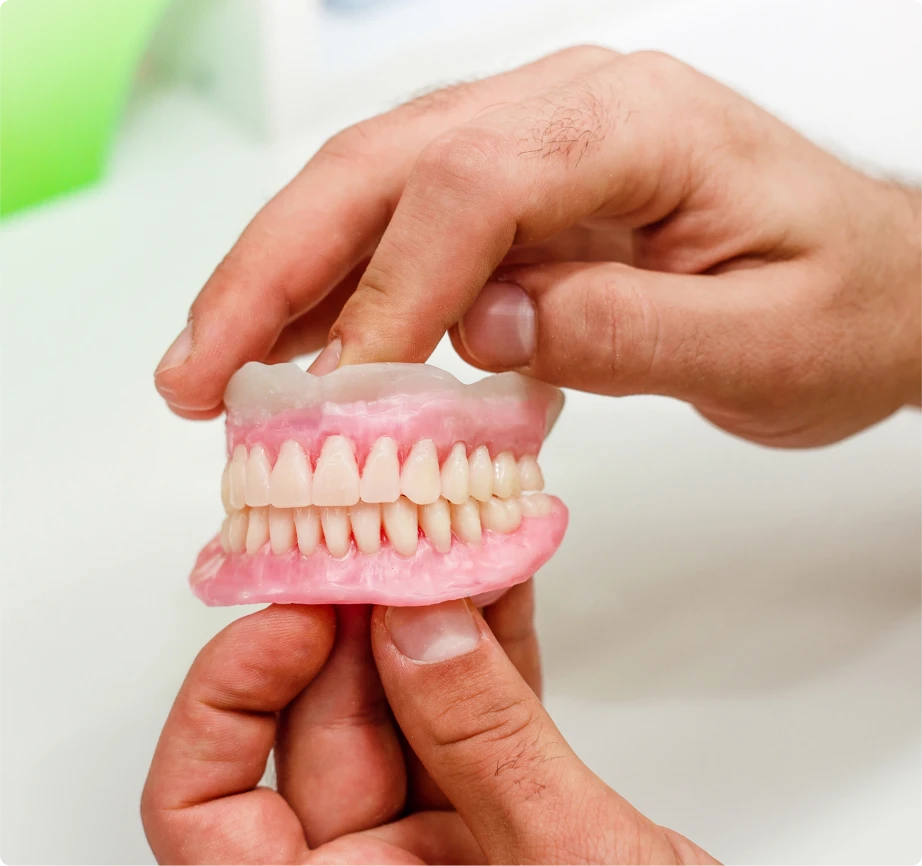
Dentures
Dentures FAQ
What are dentures?
Dentures are removable appliances used to replace missing teeth. They are custom-made to fit comfortably in your mouth and to resemble natural teeth.
Who needs dentures?
Dentures are typically recommended for people who have lost some or all of their teeth due to factors such as decay, gum disease, injury, or aging.
What types of dentures are there?
There are several types of dentures, including:
- Complete dentures: For when all teeth are missing in either the upper or lower jaw.
- Partial dentures: Used when only some teeth are missing, and they attach to remaining natural teeth with special clips and connectors.
- Implant-supported dentures: These are connected to dental implants, providing a more stable and comfortable fit.
How do I take care of my dentures?
Proper care of dentures is essential for oral health. Some tips include:
- Remove and cleaning dentures after eating.
- Brush dentures twice daily with a soft brush and denture cleaner.
- Soak dentures overnight.
- Regular check ups to ensure they do not break and are not damaged.
How long do dentures last?
The lifespan of dentures can vary depending on factors such as oral hygiene and maintenance, how much wear and tear they receive, and changes in the mouth’s structure. On average, dentures may last around 5 to 15 years before needing replacement.
Do dentures affect eating and speaking?
Initially, adjusting to dentures may affect eating and speaking, but most people adapt quickly and it can benefit both eating and speaking in the long run. Chewing may feel different at first, but as you become accustomed to your dentures, you should be able to eat a variety of foods.
Can dentures be repaired?
Yes, dentures can easily be repaired if they are damaged or broken. It’s essential to see your dentist for repairs to ensure a proper fit and function.
Are there alternatives to dentures?
Yes, the main alternatives to dentures are dental implants and / or dental bridges. Your dentist can help you determine the best option based on your individual needs and oral health.
How often should I visit the dentist with dentures?
Regular dental check-ups are still necessary when you have dentures. Your dentist will examine your mouth and dentures to ensure they fit properly and are in good condition.
Are there any complications with wearing dentures?
While dentures greatly improve chewing ability and appearance, some common issues include irritation, soreness, and difficulty with speaking or eating initially. These usually resolve with time and some adjustments. Additionally, if dentures don’t fit properly, they can cause problems such as gum infections or sores, so it’s important to see your dentist if you experience any discomfort.




